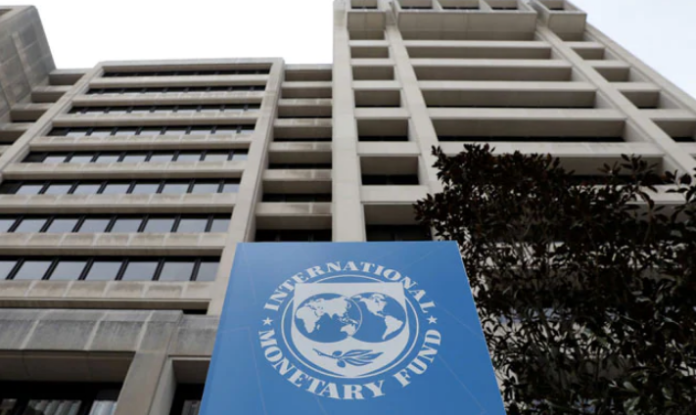—— The Washington-based lender says its team very heavily engaged with Pakistani authorities
—— Claims Pakistan’s economy facing stagflation
—— Terms obtaining commitments of ‘significant additional financing’ as essential
—— Finance Minister says Pakistan will not default even without IMF deal
—— Adds Pakistan has fulfilled all IMF conditions for SLA
—— SBP’s foreign reserves continue to decline due to loan repayment
By Anzal Amin
ISLAMABAD: Pakistan needs significant additional financing for a successful completion of the long-stalled ninth review of the International Monetary Fund’s bailout package, the IMF said on Thursday.
Obtaining commitments of “significant additional financing” is essential before the IMF approves the release of pend-ing bailout funds that are crucial for Pakistan to resolve an acute balance of payments crisis.
A staff-level accord to release a $1.1 billion tranche out of a $6.5 billion IMF package has been delayed since Novem-ber, with nearly 100 days gone since the last staff-level mission to Pakistan. That is the longest such gap since at least 2008.
Julie Kozack, an IMF spokeswoman, said in a scheduled press conference that financing already committed by Paki-stan’s external partners was welcomed.
The United Arab Emirates, Saudi Arabia and China came to Pakistan’s assistance in March and April with pledges that would cover some of the funding deficit.
On Thursday, Pakistan’s central bank reserves fell $74 mln to $4.38 billion, barely a month’s worth of imports.
“Our team is very heavily engaged of course with the Pakistani authorities,because Pakistan indeed faces a very chal-lenging situation,” said Kozack.
She added that the economy was facing stagflation, has very large financing needs and has also been affected by a series of shocks including severe floods.
Pakistan has committed not to implement a cross-subsidy programme, an IMF spokesperson told Bloomberg News. The government also will not introduce new tax exemptions and will “durably allow” a market-based exchange rate for the rupee currency, the IMF told Bloomberg on Thursday.
Meanwhile, Minister for Finance and Revenue Ishaq Dar emphasised Thursday that Pakistan would not default, even if a stalled loan programme with the International Monetary Fund (IMF) was not revived.
He made the comments while addressing the delay in signing a staff-level agreement (SLA) with the IMF for the re-lease of a crucial economic bailout, during his address at the Islamabad Security Dialogue.
Earlier this week, Moody’s Investor Service warned that the country could default without an IMF programme as its foreign exchange reserves were “very weak”.
Prior to that, Fitch Ratings also said that risks are large and a default or debt restructuring was an “increasingly real pos-sibility” for Pakistan.
However, Dar said “rumours” about Pakistan defaulting on its debt obligations should not be spread. “Whether [the deal with the] IMF is [there] or not, Pakistan will not default,” he asserted.
The financial czar also said Pakistan had fulfilled all conditions and taken steps towards reaching an agreement with the international lender for reviving the stalled loan programme.
“International politics based on injustice with Pakistan should be ended. Internationally, people are amazed at how Pakistan is managing,” he added.
Dar added that Pakistan had to pay debts amounting to $3.7 billion till June, adding that Pakistan would fulfil all prom-ises and make payments on time.
Technical discussions with the IMF ended on February 9 and there was a “gap” on the matter of the external account, he said.
“If the IMF wants more time for the staff-level agreement, it can take it. The [external debt repayments] in May and June will be done on time,” he reiterated.
International rating agencies should not discuss Pakistan’s default, he said, adding that financing would be arranged for payments in the current fiscal year as friendly countries had promised help.
The State Bank of Pakistan’s (SBP) foreign exchange reserves continued their downward trend and fell to $4.38 billion in the week ending May 5, central bank data showed Thursday.
In its weekly bulletin, the SBP said its reserves decreased by $74 million due to external debt repayment.
It further said that net reserves held by commercial banks stood at $5.61 billion, around $1.23 billion less than the SBP’s reserves, taking the country’s total liquid foreign reserves to $9.99 billion.
Pakistan’s foreign reserves have declined sharply in recent months to a critically low level. The current reserves are not sufficient for even a month’s imports — a position that has remained the same as the country faces an acute bal-ance of payments crisis.




